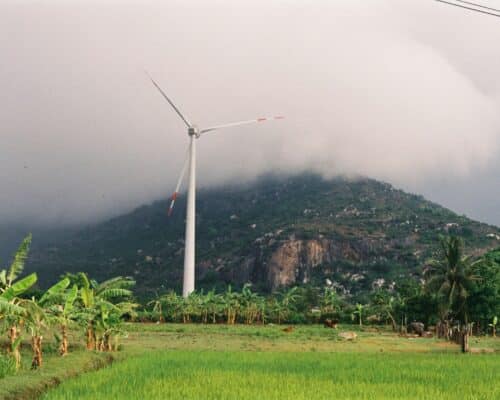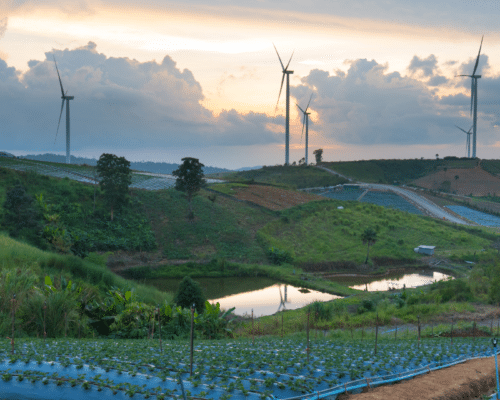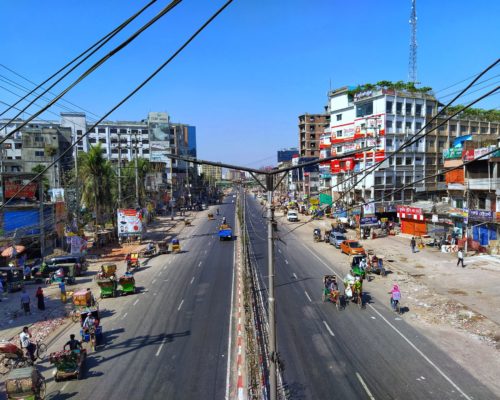The Impact of Japan’s Climate Change Policy on G7 Summit 2023
Harley Kingston / Shutterstock.com
09 May 2023 – by Ylenia Gostoli Comments (0)
As the host country of the 49th G7 Summit 2023 on May 19-21, Japan’s climate change policy has faced criticism for its lack of momentum.
Climate Change Impacts in Japan
The average temperature in Japan has increased by 1.19°C over the past century as the country experiences an increasing number of heatwaves and extreme rainfall events. In 2019, tropical cyclone Hagibis wrought widespread destruction when it made landfall in the Tokyo region, becoming the second-costliest Western Pacific typhoon on record. It had the highest amount of rainfall since reliable records began in 1976. Scientists attributed about 40% of the damage in insured losses directly to human-caused climate change.
But, critics say that Japan’s climate change policies and solutions are simply falling short. Japan needs to take concrete steps toward achieving carbon neutrality.
The Commitments of G7 Countries on Net Zero Emissions
Climate action and energy security are on the agenda as the Group of Seven meet in Hiroshima, Japan. As a result of the war in Ukraine, some developed nations have rolled back their commitments to a rapid phaseout of fossil fuels – despite pledges to achieve “fully” or “predominantly” decarbonised electricity by 2035 and end fossil fuel subsidies by 2025.
Earlier this year at a two-day summit on climate, energy and environmental policy in Sapporo, Japan, G7 ministers made big promises, setting new collective targets for solar power and offshore wind capacity, and agreeing to move faster on phasing out fossil fuels.
But, the ministers stopped short of endorsing a 2030 deadline for phasing out coal, the most polluting of fossil fuels. They also continued to embrace investment in gas as a “transitional” source of energy, citing the need to balance a fossil-fuel phaseout while ensuring energy security.
What Is Japan Doing To Reduce Carbon Emissions?
Japan made a pledge in October 2020 to reach net-zero emissions by 2050. In April 2021, it committed to reduce greenhouse gas emissions by 46% by 2030 from 2013 levels.
Japan also unveiled an initiative called “Beyond Zero”, which aims to go beyond carbon neutrality by retroactively reducing greenhouse gas emissions.
But, an analysis by Climate Action Tracker (CAT) of plans submitted to the UN as part of countries’ Nationally Determined Contributions (NDCs) estimates that Japan needs to up its game and reduce emissions by 60% from 2013 levels in order to meet the 1.5°C Paris Agreement target by 2030.
On February 10, Japan’s Prime Minister Fumio Kishida approved the “Green Transformation”, or GX, strategy, a new industrial and energy policy aimed at supporting the country’s transition to clean energy. The plan mobilises over USD 1.1 trillion in public and private investment over the next 10 years.
“What is inside of this strategy seems rather unaligned with both the 1.5°C target and the actual transformation needed, providing only unsustainable solutions against global trends,” Hirotaka Koike, Senior Political and External Affairs Officer at Greenpeace Japan, told Climate Impacts Tracker Asia.
“It does not offer sufficient renewable energy targets. It mainly pursues reactivating and building new nuclear power plants under the pretext of decarbonisation, but its timeline does not even match the speed we need to reduce the emission,” Koike said, adding that Japan is doing this despite its cost inefficiency.
Some positive steps forward for Japan in recent years include the revision of building standards, which will see all new construction built as energy-efficient from 2025 onwards – although the effects of the policy will only be seen in the long term.
The Tokyo Metropolitan Government plans to make it compulsory for the majority of new houses and buildings in Japan’s capital to install solar panels from 2025 onwards. To support decarbonisation in the building sector, the government has also introduced financial support for households to improve energy efficiency.
Japanese Government Under Fire for Coal-Fired Power Generation
The government of Japan has come under fire from environmental groups and climate researchers, who have rated Japan’s climate change policy as “insufficient”. They say the country is not doing enough to transition to renewables, such as solar and wind power. They point out that Japan plans to continue using coal to supply 19% of its electricity in 2030. This is in stark contrast to the G7 and its promise to decarbonise electricity by 2035.
The government says it plans to phase out “inefficient” coal-fired plants and advance “efforts to replace them with decarbonised thermal power by utilising hydrogen, ammonia and carbon capture utilisation and storage toward 2050″, Economy, Trade and Industry Minister Koichi Hagiuda told reporters in May 2022.
According to the International Energy Agency (IEA), while Japan has “made visible progress” towards a sustainable energy system in the last decade, its energy supply remains one of the most carbon-intensive among the organisations’ 31 members.
“Japan is still largely dependent on coal-fired power plants and wants to maximise its value through ammonia co-firing and eventually ammonia and/or hydrogen power plants,” Koike explains.
“Because investment in renewables is lacking, this leads to high electricity cost from renewables, and then it is not feasible for businesses to purchase.”
Japan also plans to roll out a new scheme, which combines emissions trading and a Japanese carbon tax to encourage companies to voluntarily pledge and disclose targets to cut emissions.
What Is Japan Doing To To Fight Global Warming?
Amid international community efforts to get rid of coal altogether, Japan’s policy of making coal plants more efficient has been met with widespread criticism.
Years of research led to the development of a coal-fired power plant in the town of Osakikamijima operated with technology that enables it to reduce the amount of coal used, as well as greenhouse gas emissions. But, the company that built the plant has conceded it still emits nearly twice as much greenhouse gas as a liquefied natural gas plant. It said it has added a carbon capture facility to further cut emissions.
However, a report by research firm BloombergNEF (BNEF) found that investing in renewable alternatives such as wind or solar would actually be cheaper for Japan.
“Retrofitting coal plants to burn ammonia is too expensive, especially with a high co-firing ratio. Japan would be better served by accelerating the deployment of renewable energy to decarbonise its power sector,” said Isshu Kikuma, Japan analyst at BNEF and lead author of the report.
“For alternative sources, first and foremost, maximising solar power capacity remains key,” Koike says, “Many areas, such as agricultural lands and roofs of buildings, are not being fully utilised, and there is a need for regulatory reforms regarding solar power plants.”
This story was originally published on Climate Impacts Tracker Asia and reproduced with permission.



